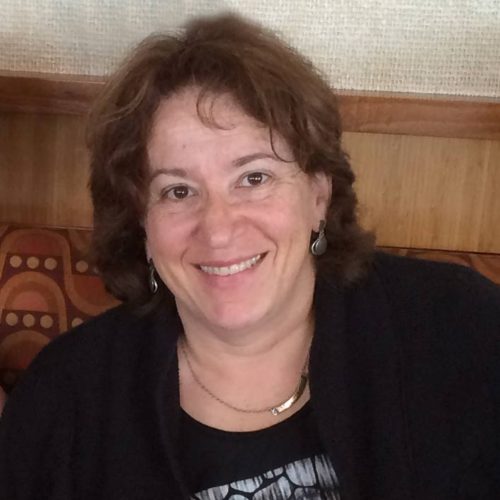Our team is made up of highly diverse, creative, talented, and energetic individuals, like Executive Team member Fran Schulberg.

Fran is an attorney who has worked on issues related to international environmental policy for her entire career. Most recently, she was the Executive Director of a non-profit organization that focused on energy efficiency in China. A former Fellow at the Council on Foreign Relations, Fran worked for more than two decades as a consultant in support of international organizations and government agencies addressing environmental and chemicals management issues. Prior to becoming a consultant, Fran worked for the Organisation for Economic Co-operation and Development in Paris in their Environment Directorate. Fran has a BS degree from SUNY Albany, with a double major in Environmental Studies and Mathematics, and a JD from Harvard Law School.
What is your role on The ClimateMusic Project?
FS: As one of three members of the Executive Team, I am involved in all involved in all aspects of the day-to-day operations of the organization. This includes, for example, facilitating the collaboration between our science team and composers, organizing live and virtual events, managing volunteers and contractors, and dealing with the administrative aspects of running a non-profit, including fundraising.
You have had a distinguished previous career in international consulting related to environmental issues, including with UN agencies and the OECD in Paris. Why are you involved in The ClimateMusic Project?
FS: I have been an environmental activist since I was a teenager and my entire career has been focused on addressing sustainability and, in particular, global and international issues. While the consulting practice was intellectually challenging, and working with representatives from around the globe was fascinating, after more than two decades I was ready for something new. In particular, I was looking to engage at a more local level, working with a committed and collaborative team, in a position that required creativity. So when Stephan asked me to join the newly-created ClimateMusic Project, I was thrilled to accept.
What do you think that this collaboration between scientists and artists can achieve?
FS: Science provides the understanding of what is happening to the climate and what we can expect, from historical data and well-established models. Bringing together international experts through the IPCC allows us to get a global consensus related to climate change. However, the science is not, in general, being well communicated to the public. Gaining a general consensus on the climate crisis is important for creating the political will needed to take the critical steps in a timely manner to avoid irreparable harm.
Music, and the arts in general, can provide an effective channel to reach large parts of the public who might not learn about the climate change through journals or lectures. The arts can reach the hearts and minds of audience members to convey the urgency of the climate crisis and can inspire individuals to take action.
What’s your favorite kind of music, and with whom would you like to see The ClimateMusic Project collaborate?
FS: I don’t have a favorite type of music; my play list includes a wide range of genres including pop, Broadway, rap, jazz, folk, R&B. and rock. I also don’t have one person in mind for a ClimateMusic collaboration. For me, the most important consideration is to find quality composers and musicians who have large followings, in order to meet the goal of having ClimateMusic reach broad and diverse audiences. There are a few well-known performers who have stated their concern for the climate, like Paul Simon, Billy Eilish, and Pharrell Williams. I would really like to find a country musician to join the ClimateMusic team since that is a genre we have not yet worked with.
What advice would you give someone who is looking to get involved in the fight against climate change?
FS: First, I would underscore that everyone has a role in addressing climate change. In addition to thinking about how your own actions can impact the climate, one of the easiest things to do is to use your voice: talk to others – friends, family, colleagues – about the issue whenever you can. Think about where you might have an influence in raising the issue – in your school or your kids’ schools, at your place of business, in your congregation. Another way to make a big difference is to learn about candidates at local, state and national levels and be sure to vote for individuals who think that climate change is an urgent issue. If you have more time, find an organization that interests you and reach out to find opportunities to work with the organization. That could involve: campaigning for a candidate you support; teaching students; engaging with others to create gardens; lobbying government officials; helping to raise money for climate-related organizations, and so on.